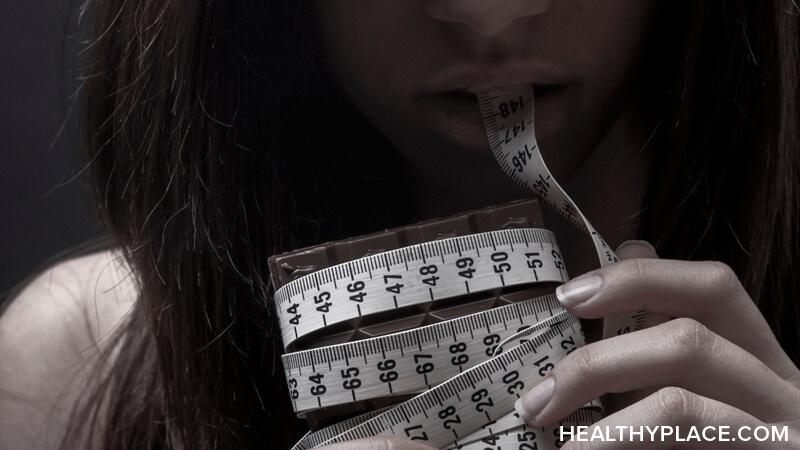What I Know About Eating Disorders Now But Wish I Knew Then

I know a great deal about eating disorders now, but wish I'd known more when I was younger. There is no shortage of hard truths and stark realities I wish my younger self recognized about eating disorders. Seriously—the list goes on and on and on. I was eight the first time I felt aware of disgust for my own body, and I was 13 when I started acting on that sensation. I was a wounded adolescent, raging at the world and grasping for a "fix" to narcotize the chaotic self-hatred and utter lack of control I endured on the inside. I had no language to express the hurt I was suffering and no framework to process the behaviors I felt drawn to. I could never have predicted that flirting with the notion, "I'll just lose a few pounds," would nosedive into a pattern of destruction which tyrannized me for 15 years (What Are Eating Disorders?). But in retrospect, all the hazard lights were flashing, had I only paid attention. So here's what I know about eating disorders now, but wish my younger self knew then—and what I hope to share with you if this is your struggle too.
Five Truths You Must Know About Eating Disorders
My younger self did not know about eating disorders or understand the hellish course I was embarking on when the thoughts of exercise, food, weight and calories first tiptoed into my subconscious. As an eight-year-old, I just concluded that my thighs were "inadequate." Then as a teenager, I learned that suppressing my appetite created a temporary distraction from all the circumstances engulfing me. I did not know what eating disorders even were back then, and I certainly didn't picture myself on the road to developing an eating disorder.
But as a college student, I was no longer the one in control—this secret I dabbled with for years had become an addiction, and it dominated my entire life (Eating Disorders: Treating Anorexia Like Addiction). I cannot guarantee if knowing then what I now know about eating disorders might have changed the brash decisions I made or the reckless actions I took, but reflecting back as a 26-year-old in eating disorder recovery offers a much different perspective.
So these five truths are what I wish my younger self knew about eating disorders.
- The degree of worth you possess is inherent in your humanity, not contingent on your body. The size of your jeans, the weight on a scale, the shape of your torso—none of these factors can subtract from or even add to the person you are becoming. Identity is rooted in the character you exhibit, the kindness and compassion you show others, the virtues and integrity you uphold, and the uniqueness and quirkiness you offer this world.
- Emotions are valid and need to be felt, but this does not mean they can always be trusted. An eating disorder feeds on the lies your fear-based emotions tell you, and listening to them will often immobilize you from moving toward recovery (Fear in the Way of Your Decision-Making? How to Move Forward). In fact, when you take steps in the healing process that feel agonizing, scary, uncomfortable, counterintuitive or just plain wrong, this can actually be an indication that you're headed in the right direction.
- Food is not the enemy, and responding to hunger cues will not end in your demise. The eating disorder has conditioned you to believe that even just one meal can undermine this "superhuman" resolve and mark you a disappointment, a failure, the weakest link. But in reality, it's the eating disorder which orchestrates your downfall. Food will nourish, sustain and keep you alive—the eating disorder will make you feel afraid, hopeless, withdrawn, anxious and miserable. It might promise satisfaction, but it has no intention of delivering.
- The body is an incredible machine that demands respect for what it does, not how it looks. When you were single-minded in the pursuit of its abuse and subjugation, your body fought to ensure you kept breathing. When you were hellbent on conforming to a standard of "perfection," your body continued to move and function and persist. Those fibers, muscles, bones and organs are survivors—they refused to quit on you despite all the eating disorder's havoc.
- While it might seem like a foreign concept, the truth is you will not regret this time in your life—no matter how dark and painful. The eating disorder itself was harrowing, but the lessons and discoveries gained in the process have molded you into a strong and resilient warrior. Choosing to recover from an eating disorder was the bravest, most countercultural decision you could have made. This experience stretched you further than you imagined possible, taught you that self-love is worth fighting for, and grew you as a person in every sense of the word.
That is what I know about eating disorders—and what I wish my younger self had also known. But if I can leverage those insights to warn someone else against walking that all-too-familiar road, this journey of mine will be worthwhile.
APA Reference
Schurrer, M.
(2018, May 15). What I Know About Eating Disorders Now But Wish I Knew Then, HealthyPlace. Retrieved
on 2025, December 7 from https://www.healthyplace.com/blogs/survivinged/2018/5/wish-i-knew-about-eating-disorders